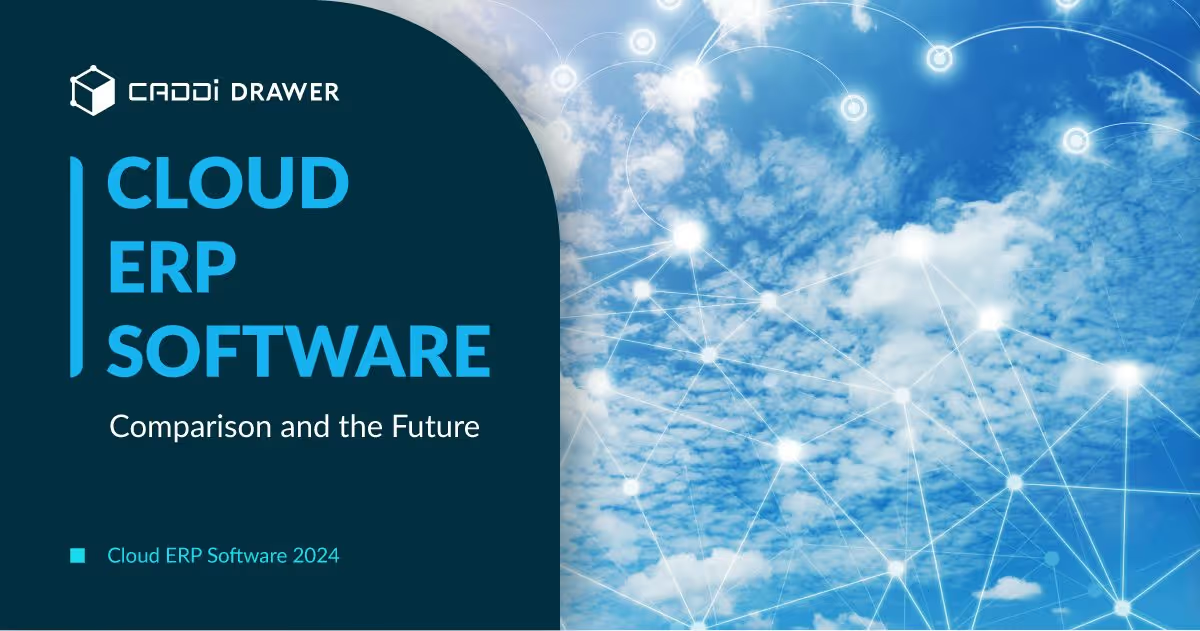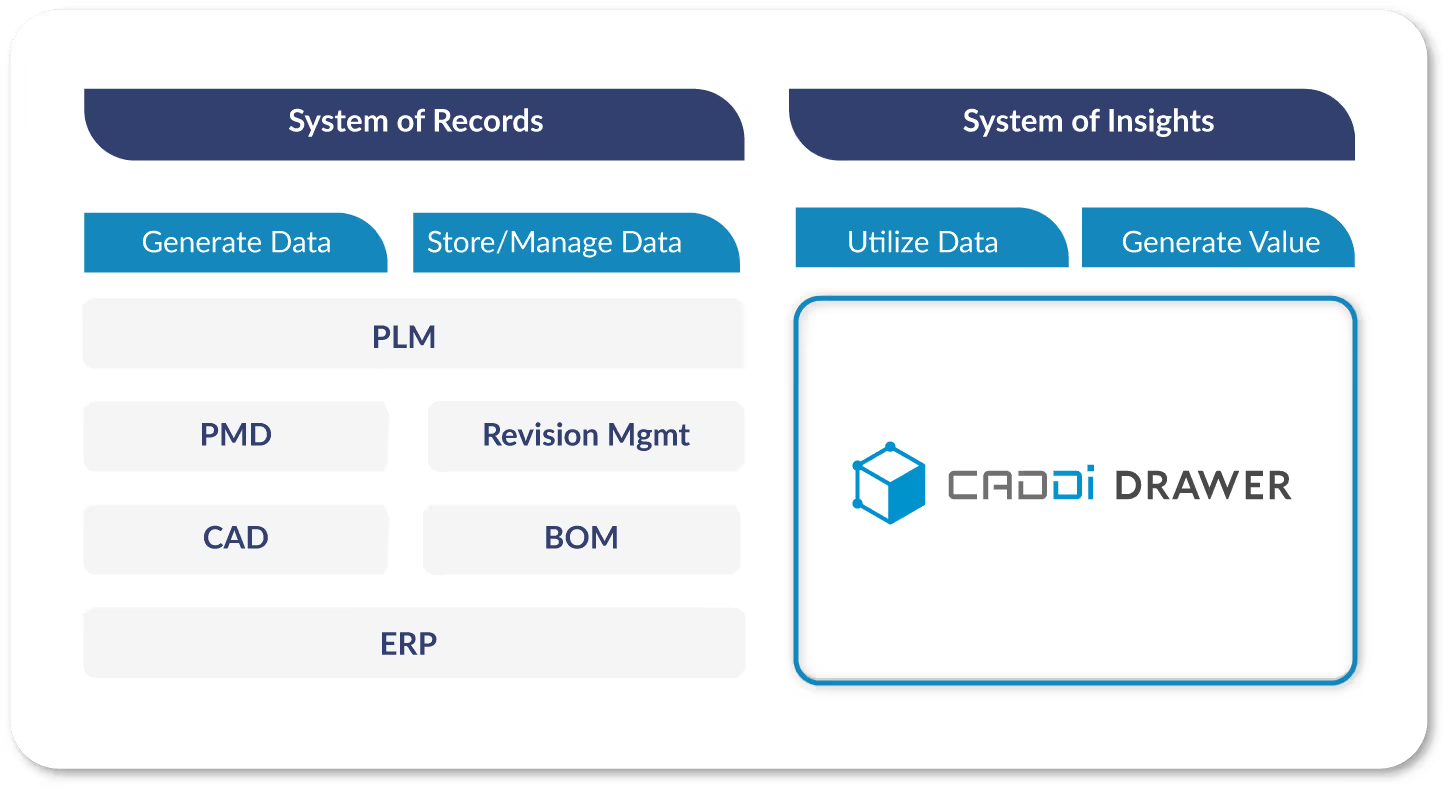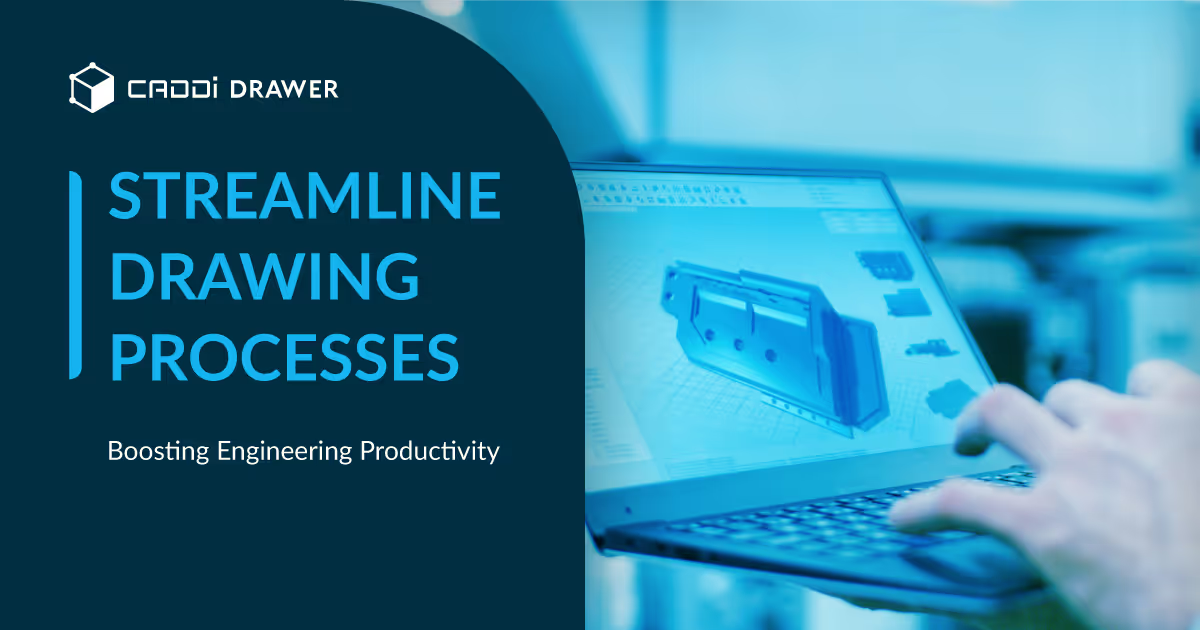Cloud ERP Software 2024 – Comparison and the future

Table of Contents

In the article “Procurement 101: Common Failures in Cloud ERP Implementation and How to Avoid Them,” we discussed how to lead cloud ERP implementations to success. Following that, this article presents a list of the major cloud ERP software and their features as of 2024. It is our hope that this will serve as a useful reference for vendor selection.
Categorization of Major Cloud ERPs
For Small to Medium-Sized Enterprises
- SAP Business ByDesign: Designed for mid-size companies, offering integrated business functions across finance, HR, sales, procurement, customer service, and supply chain.
- Odoo ERP: Highly customizable with applications for CRM, e-commerce, accounting, and more, suitable for growing companies looking for scalability.
- BizAutomation: Designed for small businesses with a comprehensive suite of management applications at an affordable price.
- Acumatica Cloud ERP: Known for excellent user experience and scalability, with industry-specific solutions for manufacturing, distribution, construction, and commerce.
- Epicor Kinetic ERP: Offers platforms catering to SMEs across manufacturing, retail, and distribution industries.
- Sage Intacct: Ideal for businesses of all sizes, including SMEs, focusing on AI-powered financial management.
For Large Enterprises and Global Companies
- Oracle NetSuite: Best for global companies requiring support for multiple languages, currencies, and complex tax regulations.
- SAP S/4HANA Cloud: Suitable for midmarket to global enterprises, offering modular solutions for end-to-end automation and real-time data utilization across various industries.
- Microsoft Dynamics 365: Favors large enterprises with its modular approach, offering comprehensive ERP and CRM solutions across multiple functions.
- IFS Cloud ERP: Ideal for heavy industries and complex organizations in aerospace, defense, manufacturing, and telecommunications.
For Specific Industries
- Epicor Prophet 21: Best for distributors, offering specialized features to enhance operational efficiency and customer satisfaction.
- Priority Software: Offers AI-driven, flexible solutions for a variety of sectors, including manufacturing, distribution, and service industries.
- QAD: Recommended for manufacturing companies, providing global support and specialized functionalities.
- Ramco Systems: Caters to a global clientele across various sectors, integrating AI and machine learning for finance, HR, supply chain, and production.
- Workday: Combines finance and HR functions into one platform, suitable for enterprises looking for streamlined operations across these departments.
Flexible Across Various Industries and Sizes
- Acumatica: Offers industry-specific editions for a broad range of business types, emphasizing flexibility and scalability.
- Sage Intacct: While focused on financial management, it serves businesses of all sizes and can be integrated with other systems for a comprehensive ERP solution.
List of the main features of major cloud ERPs and their Pros/Cons
1. Oracle NetSuite
NetSuite is renowned for its all-around excellence in cloud ERP solutions, offering comprehensive capabilities for global businesses. It supports multiple languages and currencies, which is invaluable for international operations. NetSuite’s flexibility spans financials, CRM, HR management, and e-commerce. However, its extensive feature set may come at a higher cost, which can be a hurdle for smaller enterprises.
- Pros: Vast third-party add-on options, industry-specific feature sets, highly customizable.
- Cons: Pricing details require consultation, setup can be complex, and building reports may be challenging.
2. SAP S/4HANA Cloud
Designed for end-to-end automation of operational processes, SAP S/4HANA Cloud is a modular solution that emphasizes innovation and real-time data utilization. It offers pre-designed business processes tailored to various industries, aiming to boost growth and improve business margins. Its sustainability focus and comprehensive ERP capabilities make it a solid choice for midmarket to global enterprises.
- Pros: Extensive industry-specific functionality, promotes sustainable operations, supports global business requirements.
- Cons: May require significant adaptation for specific business needs, pricing and complexity could be prohibitive for smaller businesses.
3. Microsoft Dynamics 365
A versatile suite of ERP and CRM solutions, Microsoft Dynamics 365 caters to a wide range of business functions, including sales, marketing, service, operations, and more. It’s known for its flexibility and the ability to bundle specific applications according to business needs. Dynamics 365 is a favorite among large enterprises for its scalability and the strength of Microsoft’s ecosystem.
- Pros: Comprehensive, modular solutions for various business needs, transparent pricing, strong integration capabilities.
- Cons: Can be complex to navigate and understand licensing requirements, minimum license purchase may apply.
4. Acumatica Cloud ERP
Acumatica is celebrated for its user experience and offers a comprehensive suite of ERP functionalities tailored to SMEs. It supports diverse industries with specific solutions for manufacturing, distribution, construction, and commerce. Its cloud-based platform emphasizes flexibility and scalability.
- Pros: Industry-specific editions, excellent scalability, strong community and support.
- Cons: Direct pricing details unavailable, may require customization for niche operations.
5. SAP Business ByDesign
A cloud-based ERP solution designed specifically for mid-size companies, SAP Business ByDesign covers a broad spectrum of business processes, from finance and HR to procurement and supply chain management. This integrated platform is praised for its scalability and the comprehensive visibility it offers across the business, facilitating informed decision-making and efficient operations.
- Pros: Unified platform for various business functions, supports real-time analytics, scalable to grow with your business, and leverages SAP’s robust ecosystem.
- Cons: Requires consistent internet connectivity, customization for specific business needs can be challenging, and the pricing model may be a consideration for smaller businesses.
6. Odoo ERP
Odoo provides a suite of open-source business management applications covering CRM, e-commerce, accounting, inventory management, and more. Its modularity allows businesses to add applications as needed, making it a scalable option for growing companies.
- Pros: Open-source and highly customizable, scalable with business growth, comprehensive application suite.
- Cons: Open-source nature may require technical expertise, scalability can lead to increased costs.
7. Epicor Prophet 21
Best suited for distributors, Epicor Prophet 21 offers specialized features to enhance operational efficiency, including automation in shipping and customer satisfaction. Its warehouse management capabilities are notable for distributors looking to streamline operations.
- Pros: Industry-specific features for distributors, integrated CRM, low total cost of ownership.
- Cons: Additional support costs for on-premise deployment, may require extensive customization.
8. Sage Intacct
Focused on financial management, Sage Intacct provides AI-powered accounting solutions. It delivers real-time insights into finances, streamlines accounting processes, and enhances cash flow management. Sage Intacct is suitable for businesses of all sizes seeking advanced financial management tools.
- Pros: Deep financial tracking and management, strong community and educational resources, AI and automation-driven accounting.
- Cons: Focus on financial management may require integration with other systems for comprehensive ERP functionality.
9. IFS Cloud ERP
Ideal for heavy industries, IFS Cloud ERP excels in sectors like aerospace, defense, manufacturing, and telecommunications. Its composable environment allows for highly customizable workflows, with capabilities spanning financial management, CRM, procurement, and more.
- Pros: Highly flexible, comprehensive service offerings, supports both cloud and on-premises deployment.
- Cons: Customer service may vary, complex integrations, potentially cluttered interface.
10. Workday
Workday combines finance and HR functions into a single platform, offering a wide range of capabilities including human capital management, financial planning, and analytics. It is known for its adaptability and ease of use, though it may be considered expensive.
- Pros: Adaptable, real-time updates, comprehensive finance and HR services.
- Cons: Possible information overload, lacks batch processes, relatively high cost.
11. Epicor Kinetic ERP
Targeted at SMBs, Epicor offers platforms like Epicor Eagle for retailers and Epicor Eclipse for distributors, among others. Its solutions cater to various industries, providing capabilities such as point-of-sale, inventory management, and supply chain management.
- Pros: Industry-specific solutions, comprehensive functionality for SMBs.
- Cons: Pricing and platform details require direct consultation.
12. Priority Software
Priority Software delivers flexible, scalable ERP solutions with built-in AI capabilities, supporting a wide range of industries. Its user-friendly platform offers features for CRM, HR, supply chain management, and more.
- Pros: AI-driven, intuitive UX, supports diverse industries.
- Cons: Detailed pricing and customization options not specified.
13. QAD
QAD provides a cloud-based ERP solution recommended for manufacturing companies, supporting global operations with multi-language support and a focus on performance and security.
- Pros: Specialized for manufacturing, strong global support, secure and reliable.
- Cons: Best suited for larger organizations, which may limit accessibility for smaller businesses.
14. Ramco Systems
Ramco offers an ERP suite equipped with AI and machine learning capabilities, catering to a global clientele across various sectors. The platform includes functionalities for finance, HR, supply chain, and production.
- Pros: AI and ML integration, comprehensive ERP functionalities, global support.
- Cons: Implementation and customization details require direct inquiry.
15. BizAutomation
A cloud-based ERP system designed for small businesses, BizAutomation offers a suite of business management applications at an affordable price. It emphasizes comprehensive functionality balanced with user-friendliness.
- Pros: Affordable, integrates multiple business functions, designed for small businesses.
- Cons: Limited BI functionalities, no mobile app reported.
16. Acumatica
Noted for its user experience, Acumatica Cloud ERP provides a comprehensive suite tailored to SMEs. It supports diverse industries with solutions for manufacturing, distribution, construction, commerce, and more.
- Pros: Industry-specific editions, excellent scalability, strong community and support.
- Cons: Direct pricing details unavailable, may require customization for niche operations.
The Future of Cloud ERP
The future of cloud ERP is poised for significant evolution, with technological advancements and changing business needs driving innovation in the sector.
AI-Powered Insights
ERP systems equipped with AI can analyze vast amounts of data to offer actionable insights that were previously difficult or impossible to obtain. These insights can range from identifying inefficiencies in operations to highlighting opportunities for cost reduction or revenue generation. AI-driven ERP systems can automate routine tasks, freeing up human resources for more strategic initiatives.
Predictive Analysis
Predictive analysis in ERP systems uses historical data to forecast future trends, behaviors, and outcomes. This capability allows businesses to be more proactive rather than reactive. For instance, predictive analysis can help in demand planning, inventory optimization, and identifying potential supply chain disruptions before they occur. This foresight enables businesses to make informed decisions, minimize risks, and seize opportunities.
The Rise of Headless ERP
The concept of headless ERP represents a significant shift in how businesses can utilize enterprise resource planning systems. Traditionally, ERP systems come with a front-end interface through which users interact with the software. However, a headless ERP decouples the front-end user interface from the back-end data processing and management functions. This approach allows businesses to use any front-end solution they prefer (or develop custom interfaces) to interact with their ERP’s back-end capabilities.
Potential Benefits of Headless ERP
- Customization and Flexibility: Businesses can create custom interfaces tailored to their specific workflows and user needs, enhancing efficiency and user experience.
- Integration Ease: Headless ERP can seamlessly integrate with other systems and platforms, as the API-driven approach facilitates communication between the ERP’s back-end and various front-ends or other business systems.
- Future-proofing: As new technologies and interface paradigms emerge, companies can adopt them without overhauling their entire ERP system, ensuring their operations remain at the cutting edge.
How CADDi Drawer Can Enhances Leveraging Data in Cloud ERPs
While cloud ERPs offer various advantages, in procurement activities and supply chain management, it’s not feasible to complete tasks with only the data within the ERP. It becomes necessary to analyze and make decisions for supplier selection and management, RFQ creation, and quote evaluations by combining various types of information such as drawing data (design information) and supplier data.
Therefore, in addition to Systems of Records (SoR), which mainly manage and store structured data, there is a need for Systems of Insights (SoI). These systems extract data from SoRs for procurement intelligence processes such as analysis and handling data processing. One such SoI is introduced below: CADDi Drawer.

It has the unique capability to automatically convert unstructured data on drawings into structured data, making it accessible and analyzable alongside traditional structured data sources. This capability allows CADDi Drawer to offer comprehensive insights that were previously unattainable.
.avif)
By turning drawings and other unstructured data into structured formats, CADDi Drawer enables procurement teams to perform deep analytics on a wider array of data points and significantly streamline procurement activities such as supplier selection. This capability opens up a multitude of opportunities for insights, from identifying non-obvious cost drivers in the supply chain to uncovering efficiencies in product specifications or procurement processes.
In the article “Procurement 101: Common Failures in Cloud ERP Implementation and How to Avoid Them,” we discussed how to lead cloud ERP implementations to success. Following that, this article presents a list of the major cloud ERP software and their features as of 2024. It is our hope that this will serve as a useful reference for vendor selection.
Categorization of Major Cloud ERPs
For Small to Medium-Sized Enterprises
- SAP Business ByDesign: Designed for mid-size companies, offering integrated business functions across finance, HR, sales, procurement, customer service, and supply chain.
- Odoo ERP: Highly customizable with applications for CRM, e-commerce, accounting, and more, suitable for growing companies looking for scalability.
- BizAutomation: Designed for small businesses with a comprehensive suite of management applications at an affordable price.
- Acumatica Cloud ERP: Known for excellent user experience and scalability, with industry-specific solutions for manufacturing, distribution, construction, and commerce.
- Epicor Kinetic ERP: Offers platforms catering to SMEs across manufacturing, retail, and distribution industries.
- Sage Intacct: Ideal for businesses of all sizes, including SMEs, focusing on AI-powered financial management.
For Large Enterprises and Global Companies
- Oracle NetSuite: Best for global companies requiring support for multiple languages, currencies, and complex tax regulations.
- SAP S/4HANA Cloud: Suitable for midmarket to global enterprises, offering modular solutions for end-to-end automation and real-time data utilization across various industries.
- Microsoft Dynamics 365: Favors large enterprises with its modular approach, offering comprehensive ERP and CRM solutions across multiple functions.
- IFS Cloud ERP: Ideal for heavy industries and complex organizations in aerospace, defense, manufacturing, and telecommunications.
For Specific Industries
- Epicor Prophet 21: Best for distributors, offering specialized features to enhance operational efficiency and customer satisfaction.
- Priority Software: Offers AI-driven, flexible solutions for a variety of sectors, including manufacturing, distribution, and service industries.
- QAD: Recommended for manufacturing companies, providing global support and specialized functionalities.
- Ramco Systems: Caters to a global clientele across various sectors, integrating AI and machine learning for finance, HR, supply chain, and production.
- Workday: Combines finance and HR functions into one platform, suitable for enterprises looking for streamlined operations across these departments.
Flexible Across Various Industries and Sizes
- Acumatica: Offers industry-specific editions for a broad range of business types, emphasizing flexibility and scalability.
- Sage Intacct: While focused on financial management, it serves businesses of all sizes and can be integrated with other systems for a comprehensive ERP solution.
List of the main features of major cloud ERPs and their Pros/Cons
1. Oracle NetSuite
NetSuite is renowned for its all-around excellence in cloud ERP solutions, offering comprehensive capabilities for global businesses. It supports multiple languages and currencies, which is invaluable for international operations. NetSuite’s flexibility spans financials, CRM, HR management, and e-commerce. However, its extensive feature set may come at a higher cost, which can be a hurdle for smaller enterprises.
- Pros: Vast third-party add-on options, industry-specific feature sets, highly customizable.
- Cons: Pricing details require consultation, setup can be complex, and building reports may be challenging.
2. SAP S/4HANA Cloud
Designed for end-to-end automation of operational processes, SAP S/4HANA Cloud is a modular solution that emphasizes innovation and real-time data utilization. It offers pre-designed business processes tailored to various industries, aiming to boost growth and improve business margins. Its sustainability focus and comprehensive ERP capabilities make it a solid choice for midmarket to global enterprises.
- Pros: Extensive industry-specific functionality, promotes sustainable operations, supports global business requirements.
- Cons: May require significant adaptation for specific business needs, pricing and complexity could be prohibitive for smaller businesses.
3. Microsoft Dynamics 365
A versatile suite of ERP and CRM solutions, Microsoft Dynamics 365 caters to a wide range of business functions, including sales, marketing, service, operations, and more. It’s known for its flexibility and the ability to bundle specific applications according to business needs. Dynamics 365 is a favorite among large enterprises for its scalability and the strength of Microsoft’s ecosystem.
- Pros: Comprehensive, modular solutions for various business needs, transparent pricing, strong integration capabilities.
- Cons: Can be complex to navigate and understand licensing requirements, minimum license purchase may apply.
4. Acumatica Cloud ERP
Acumatica is celebrated for its user experience and offers a comprehensive suite of ERP functionalities tailored to SMEs. It supports diverse industries with specific solutions for manufacturing, distribution, construction, and commerce. Its cloud-based platform emphasizes flexibility and scalability.
- Pros: Industry-specific editions, excellent scalability, strong community and support.
- Cons: Direct pricing details unavailable, may require customization for niche operations.
5. SAP Business ByDesign
A cloud-based ERP solution designed specifically for mid-size companies, SAP Business ByDesign covers a broad spectrum of business processes, from finance and HR to procurement and supply chain management. This integrated platform is praised for its scalability and the comprehensive visibility it offers across the business, facilitating informed decision-making and efficient operations.
- Pros: Unified platform for various business functions, supports real-time analytics, scalable to grow with your business, and leverages SAP’s robust ecosystem.
- Cons: Requires consistent internet connectivity, customization for specific business needs can be challenging, and the pricing model may be a consideration for smaller businesses.
6. Odoo ERP
Odoo provides a suite of open-source business management applications covering CRM, e-commerce, accounting, inventory management, and more. Its modularity allows businesses to add applications as needed, making it a scalable option for growing companies.
- Pros: Open-source and highly customizable, scalable with business growth, comprehensive application suite.
- Cons: Open-source nature may require technical expertise, scalability can lead to increased costs.
7. Epicor Prophet 21
Best suited for distributors, Epicor Prophet 21 offers specialized features to enhance operational efficiency, including automation in shipping and customer satisfaction. Its warehouse management capabilities are notable for distributors looking to streamline operations.
- Pros: Industry-specific features for distributors, integrated CRM, low total cost of ownership.
- Cons: Additional support costs for on-premise deployment, may require extensive customization.
8. Sage Intacct
Focused on financial management, Sage Intacct provides AI-powered accounting solutions. It delivers real-time insights into finances, streamlines accounting processes, and enhances cash flow management. Sage Intacct is suitable for businesses of all sizes seeking advanced financial management tools.
- Pros: Deep financial tracking and management, strong community and educational resources, AI and automation-driven accounting.
- Cons: Focus on financial management may require integration with other systems for comprehensive ERP functionality.
9. IFS Cloud ERP
Ideal for heavy industries, IFS Cloud ERP excels in sectors like aerospace, defense, manufacturing, and telecommunications. Its composable environment allows for highly customizable workflows, with capabilities spanning financial management, CRM, procurement, and more.
- Pros: Highly flexible, comprehensive service offerings, supports both cloud and on-premises deployment.
- Cons: Customer service may vary, complex integrations, potentially cluttered interface.
10. Workday
Workday combines finance and HR functions into a single platform, offering a wide range of capabilities including human capital management, financial planning, and analytics. It is known for its adaptability and ease of use, though it may be considered expensive.
- Pros: Adaptable, real-time updates, comprehensive finance and HR services.
- Cons: Possible information overload, lacks batch processes, relatively high cost.
11. Epicor Kinetic ERP
Targeted at SMBs, Epicor offers platforms like Epicor Eagle for retailers and Epicor Eclipse for distributors, among others. Its solutions cater to various industries, providing capabilities such as point-of-sale, inventory management, and supply chain management.
- Pros: Industry-specific solutions, comprehensive functionality for SMBs.
- Cons: Pricing and platform details require direct consultation.
12. Priority Software
Priority Software delivers flexible, scalable ERP solutions with built-in AI capabilities, supporting a wide range of industries. Its user-friendly platform offers features for CRM, HR, supply chain management, and more.
- Pros: AI-driven, intuitive UX, supports diverse industries.
- Cons: Detailed pricing and customization options not specified.
13. QAD
QAD provides a cloud-based ERP solution recommended for manufacturing companies, supporting global operations with multi-language support and a focus on performance and security.
- Pros: Specialized for manufacturing, strong global support, secure and reliable.
- Cons: Best suited for larger organizations, which may limit accessibility for smaller businesses.
14. Ramco Systems
Ramco offers an ERP suite equipped with AI and machine learning capabilities, catering to a global clientele across various sectors. The platform includes functionalities for finance, HR, supply chain, and production.
- Pros: AI and ML integration, comprehensive ERP functionalities, global support.
- Cons: Implementation and customization details require direct inquiry.
15. BizAutomation
A cloud-based ERP system designed for small businesses, BizAutomation offers a suite of business management applications at an affordable price. It emphasizes comprehensive functionality balanced with user-friendliness.
- Pros: Affordable, integrates multiple business functions, designed for small businesses.
- Cons: Limited BI functionalities, no mobile app reported.
16. Acumatica
Noted for its user experience, Acumatica Cloud ERP provides a comprehensive suite tailored to SMEs. It supports diverse industries with solutions for manufacturing, distribution, construction, commerce, and more.
- Pros: Industry-specific editions, excellent scalability, strong community and support.
- Cons: Direct pricing details unavailable, may require customization for niche operations.
The Future of Cloud ERP
The future of cloud ERP is poised for significant evolution, with technological advancements and changing business needs driving innovation in the sector.
AI-Powered Insights
ERP systems equipped with AI can analyze vast amounts of data to offer actionable insights that were previously difficult or impossible to obtain. These insights can range from identifying inefficiencies in operations to highlighting opportunities for cost reduction or revenue generation. AI-driven ERP systems can automate routine tasks, freeing up human resources for more strategic initiatives.
Predictive Analysis
Predictive analysis in ERP systems uses historical data to forecast future trends, behaviors, and outcomes. This capability allows businesses to be more proactive rather than reactive. For instance, predictive analysis can help in demand planning, inventory optimization, and identifying potential supply chain disruptions before they occur. This foresight enables businesses to make informed decisions, minimize risks, and seize opportunities.
The Rise of Headless ERP
The concept of headless ERP represents a significant shift in how businesses can utilize enterprise resource planning systems. Traditionally, ERP systems come with a front-end interface through which users interact with the software. However, a headless ERP decouples the front-end user interface from the back-end data processing and management functions. This approach allows businesses to use any front-end solution they prefer (or develop custom interfaces) to interact with their ERP’s back-end capabilities.
Potential Benefits of Headless ERP
- Customization and Flexibility: Businesses can create custom interfaces tailored to their specific workflows and user needs, enhancing efficiency and user experience.
- Integration Ease: Headless ERP can seamlessly integrate with other systems and platforms, as the API-driven approach facilitates communication between the ERP’s back-end and various front-ends or other business systems.
- Future-proofing: As new technologies and interface paradigms emerge, companies can adopt them without overhauling their entire ERP system, ensuring their operations remain at the cutting edge.
How CADDi Drawer Can Enhances Leveraging Data in Cloud ERPs
While cloud ERPs offer various advantages, in procurement activities and supply chain management, it’s not feasible to complete tasks with only the data within the ERP. It becomes necessary to analyze and make decisions for supplier selection and management, RFQ creation, and quote evaluations by combining various types of information such as drawing data (design information) and supplier data.
Therefore, in addition to Systems of Records (SoR), which mainly manage and store structured data, there is a need for Systems of Insights (SoI). These systems extract data from SoRs for procurement intelligence processes such as analysis and handling data processing. One such SoI is introduced below: CADDi Drawer.

It has the unique capability to automatically convert unstructured data on drawings into structured data, making it accessible and analyzable alongside traditional structured data sources. This capability allows CADDi Drawer to offer comprehensive insights that were previously unattainable.
.avif)
By turning drawings and other unstructured data into structured formats, CADDi Drawer enables procurement teams to perform deep analytics on a wider array of data points and significantly streamline procurement activities such as supplier selection. This capability opens up a multitude of opportunities for insights, from identifying non-obvious cost drivers in the supply chain to uncovering efficiencies in product specifications or procurement processes.
Ready to see CADDi Drawer in action? Get a personalized demo.
Subscribe to our Blog!
Related Resources












.svg)



.svg)
.svg)
.svg)


